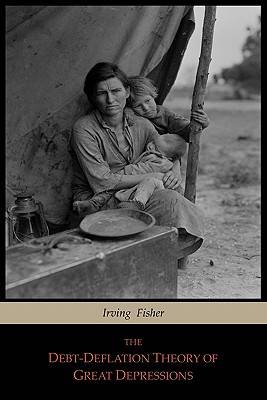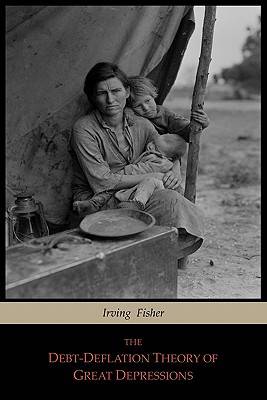
- Afhalen na 1 uur in een winkel met voorraad
- Gratis thuislevering in België vanaf € 30
- Ruim aanbod met 7 miljoen producten
- Afhalen na 1 uur in een winkel met voorraad
- Gratis thuislevering in België vanaf € 30
- Ruim aanbod met 7 miljoen producten
Zoeken
Omschrijving
2011 Reprint of the 1933 edition. Following the stock market crash of 1929 and the ensuing Great Depression, Fisher developed a theory of economic crises called "debt-deflation", which rejected general equilibrium theory and attributed crises to the bursting of a credit bubble. According to the debt deflation theory, a sequence of effects of the debt bubble bursting occurs: 1. Debt liquidation and distress selling. 2. Contraction of the money supply as bank loans are paid off. 3. A fall in the level of asset prices. 4. A still greater fall in the net worth of businesses, precipitating bankruptcies. 5. A fall in profits. 6. A reduction in output, in trade and in employment. 7. Pessimism and loss of confidence. 8. Hoarding of money. 9. A fall in nominal interest rates and a rise in deflation adjusted interest rates. This theory was ignored in favor of Keynesian economics, partly due to the damage to Fisher's reputation from his overly optimistic attitude prior to the crash, but has experienced a revival of mainstream interest since the 1980s, particularly since the Late-2000s recession, and is now a main theory with which he is popularly associated.
Specificaties
Betrokkenen
- Auteur(s):
- Uitgeverij:
Inhoud
- Aantal bladzijden:
- 46
- Taal:
- Engels
Eigenschappen
- Productcode (EAN):
- 9781614270102
- Verschijningsdatum:
- 29/03/2011
- Uitvoering:
- Paperback
- Formaat:
- Trade paperback (VS)
- Afmetingen:
- 152 mm x 229 mm
- Gewicht:
- 81 g

Alleen bij Standaard Boekhandel
+ 20 punten op je klantenkaart van Standaard Boekhandel
Beoordelingen
We publiceren alleen reviews die voldoen aan de voorwaarden voor reviews. Bekijk onze voorwaarden voor reviews.











